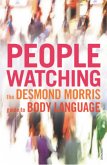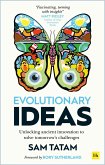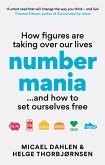- Broschiertes Buch
- Merkliste
- Auf die Merkliste
- Bewerten Bewerten
- Teilen
- Produkt teilen
- Produkterinnerung
- Produkterinnerung
This book teaches readers to be informed consumers of research---that is, to thoughtfully evaluate the research they read rather than accept it without question.
Andere Kunden interessierten sich auch für
![Peoplewatching Peoplewatching]() Desmond MorrisPeoplewatching25,99 €
Desmond MorrisPeoplewatching25,99 €![Political Entrepreneurs Political Entrepreneurs]() Catherine E. De VriesPolitical Entrepreneurs37,99 €
Catherine E. De VriesPolitical Entrepreneurs37,99 €![Evolutionary Ideas Evolutionary Ideas]() Sam TatamEvolutionary Ideas22,99 €
Sam TatamEvolutionary Ideas22,99 €![Numbermania Numbermania]() Micael DahlenNumbermania9,99 €
Micael DahlenNumbermania9,99 €![Plato's Ghost Plato's Ghost]() Nilofer KaulPlato's Ghost42,99 €
Nilofer KaulPlato's Ghost42,99 €![Political Entrepreneurs Political Entrepreneurs]() Catherine E. De VriesPolitical Entrepreneurs30,99 €
Catherine E. De VriesPolitical Entrepreneurs30,99 €![Decolonizing Consciousness Decolonizing Consciousness]() Shilpa Ashok PanditDecolonizing Consciousness160,99 €
Shilpa Ashok PanditDecolonizing Consciousness160,99 €-
-
-
This book teaches readers to be informed consumers of research---that is, to thoughtfully evaluate the research they read rather than accept it without question.
Hinweis: Dieser Artikel kann nur an eine deutsche Lieferadresse ausgeliefert werden.
Hinweis: Dieser Artikel kann nur an eine deutsche Lieferadresse ausgeliefert werden.
Produktdetails
- Produktdetails
- Verlag: American Psychological Association
- 2 ed
- Seitenzahl: 541
- Erscheinungstermin: 18. September 2017
- Englisch
- Abmessung: 259mm x 177mm x 20mm
- Gewicht: 622g
- ISBN-13: 9781433827105
- ISBN-10: 1433827107
- Artikelnr.: 48464982
- Herstellerkennzeichnung
- Libri GmbH
- Europaallee 1
- 36244 Bad Hersfeld
- gpsr@libri.de
- Verlag: American Psychological Association
- 2 ed
- Seitenzahl: 541
- Erscheinungstermin: 18. September 2017
- Englisch
- Abmessung: 259mm x 177mm x 20mm
- Gewicht: 622g
- ISBN-13: 9781433827105
- ISBN-10: 1433827107
- Artikelnr.: 48464982
- Herstellerkennzeichnung
- Libri GmbH
- Europaallee 1
- 36244 Bad Hersfeld
- gpsr@libri.de
Julian Meltzoff, PhD, earned his doctorate in psychology from the University of Pennsylvania. From 1979 to 1996 he was professor of psychology and director of research at the California School of Professional Psychology in San Diego. He taught graduate courses in the design and critique of research, conducted doctoral research seminars, and supervised the school’s dissertation process. Prior to 1979, Dr. Meltzoff served for an extended period as chief psychologist in Veterans Affairs facilities in Pennsylvania and New York. Dr. Meltzoff was engaged in doing research, writing about research, and consulting on research throughout his clinical, administrative, and academic career. He is the coauthor of The Day Treatment Center: Principles, Application, and Evaluation (1966) and Research in Psychotherapy (1970), as well as numerous journal articles and book chapters. He passed away in December 2015 at age 94. Harris Cooper, PhD, is the Hugo L. Blomquist Distinguished Professor of Psychology & Neuroscience at Duke University. He is the author of several books, including Research Synthesis and Meta-Analysis: A Step-by-Step Approach (2017); Ethical Choices in Research: Managing Data, Writing Reports, and Publishing Results in the Social Sciences (2016); and Reporting Research in Psychology: How to Meet Journal Article Reporting Standards (2011). He served as editor of the Psychological Bulletin and Archives of Scientific Psychology, and as department chair at Duke University and the University of Missouri–Columbia.
Forward
Introduction. Why Psychologists and Professionals in Related Fields Need to
be Critical Thinkers
Overview of the Chapters
Who Will Find This Book Useful?
Part I. Principles of Critical Thinking
1. Seeking Trustworthy Knowledge
2. Research Questions and Hypotheses
3. Research Variables and Strategies
4. The Sample
5. Confounding Variables and Their Control
6. Research Designs and Threats to Internal Validity
7. Manipulation and Measurement Validity
8. Data Analysis, Discussion, and Conclusions
9. Inferences, Conclusions, and the Research Report
10. Research Syntheses and Meta-Analysis
11. Research Ethics
Part II. Critical Thinking Using Practice Articles
Practice Article 1. Use of Counselor “Street Talk” to Stimulate
Self-Disclosure of Inner-City Youths
Practice Article 2. Treatment of Flying Phobia: Comparative Efficacy of Two
Behavioral Methods
Practice Article 3. The Effect of Divorce on Sons’ Aggression
Practice Article 4. Dyslexia in Fifth-Grade Girls: Personality and
Perceptual Factors
Practice Article 5. Time Estimation: Effect of Depression and Pleasantness
or Unpleasantness of an Experience
Practice Article 6. Bossiness in Firstborn Girls
Practice Article 7. Effect of Context Upon Accuracy of Recall of Affective
Experiences
Practice Article 8. The Effects of Medication and Cognitive Behavior
Therapy on Insomnia
Practice Article 9. Midlife Crises of Men at Age 50
Practice Article 10. Effect of Job Stress and Stress Management on Low Back
Pain
Practice Article 11. Evaluation of Health Maintenance Organizations
Practice Article 12. Effects of Jury Selection Consultation on Trial
Outcome
Practice Article 13. Contingency Reinforcement in the Treatment of Talking
Aloud to Self: A Single-Case Study
Practice Article 14. The Effect of Race of Examiner on IQ Scores of
American Indians
Practice Article 15. Social Effects of Tax Deadline
Practice Article 16. Comparative Effectiveness of Teacher Management Styles
in a Fifth-Grade Classroom
Practice Article 17. Age Differences in Gullibility: A Meta-Analysis
Epilogue
Glossary
References
Index
About the Authors
Introduction. Why Psychologists and Professionals in Related Fields Need to
be Critical Thinkers
Overview of the Chapters
Who Will Find This Book Useful?
Part I. Principles of Critical Thinking
1. Seeking Trustworthy Knowledge
2. Research Questions and Hypotheses
3. Research Variables and Strategies
4. The Sample
5. Confounding Variables and Their Control
6. Research Designs and Threats to Internal Validity
7. Manipulation and Measurement Validity
8. Data Analysis, Discussion, and Conclusions
9. Inferences, Conclusions, and the Research Report
10. Research Syntheses and Meta-Analysis
11. Research Ethics
Part II. Critical Thinking Using Practice Articles
Practice Article 1. Use of Counselor “Street Talk” to Stimulate
Self-Disclosure of Inner-City Youths
Practice Article 2. Treatment of Flying Phobia: Comparative Efficacy of Two
Behavioral Methods
Practice Article 3. The Effect of Divorce on Sons’ Aggression
Practice Article 4. Dyslexia in Fifth-Grade Girls: Personality and
Perceptual Factors
Practice Article 5. Time Estimation: Effect of Depression and Pleasantness
or Unpleasantness of an Experience
Practice Article 6. Bossiness in Firstborn Girls
Practice Article 7. Effect of Context Upon Accuracy of Recall of Affective
Experiences
Practice Article 8. The Effects of Medication and Cognitive Behavior
Therapy on Insomnia
Practice Article 9. Midlife Crises of Men at Age 50
Practice Article 10. Effect of Job Stress and Stress Management on Low Back
Pain
Practice Article 11. Evaluation of Health Maintenance Organizations
Practice Article 12. Effects of Jury Selection Consultation on Trial
Outcome
Practice Article 13. Contingency Reinforcement in the Treatment of Talking
Aloud to Self: A Single-Case Study
Practice Article 14. The Effect of Race of Examiner on IQ Scores of
American Indians
Practice Article 15. Social Effects of Tax Deadline
Practice Article 16. Comparative Effectiveness of Teacher Management Styles
in a Fifth-Grade Classroom
Practice Article 17. Age Differences in Gullibility: A Meta-Analysis
Epilogue
Glossary
References
Index
About the Authors
Forward
Introduction. Why Psychologists and Professionals in Related Fields Need to
be Critical Thinkers
Overview of the Chapters
Who Will Find This Book Useful?
Part I. Principles of Critical Thinking
1. Seeking Trustworthy Knowledge
2. Research Questions and Hypotheses
3. Research Variables and Strategies
4. The Sample
5. Confounding Variables and Their Control
6. Research Designs and Threats to Internal Validity
7. Manipulation and Measurement Validity
8. Data Analysis, Discussion, and Conclusions
9. Inferences, Conclusions, and the Research Report
10. Research Syntheses and Meta-Analysis
11. Research Ethics
Part II. Critical Thinking Using Practice Articles
Practice Article 1. Use of Counselor “Street Talk” to Stimulate
Self-Disclosure of Inner-City Youths
Practice Article 2. Treatment of Flying Phobia: Comparative Efficacy of Two
Behavioral Methods
Practice Article 3. The Effect of Divorce on Sons’ Aggression
Practice Article 4. Dyslexia in Fifth-Grade Girls: Personality and
Perceptual Factors
Practice Article 5. Time Estimation: Effect of Depression and Pleasantness
or Unpleasantness of an Experience
Practice Article 6. Bossiness in Firstborn Girls
Practice Article 7. Effect of Context Upon Accuracy of Recall of Affective
Experiences
Practice Article 8. The Effects of Medication and Cognitive Behavior
Therapy on Insomnia
Practice Article 9. Midlife Crises of Men at Age 50
Practice Article 10. Effect of Job Stress and Stress Management on Low Back
Pain
Practice Article 11. Evaluation of Health Maintenance Organizations
Practice Article 12. Effects of Jury Selection Consultation on Trial
Outcome
Practice Article 13. Contingency Reinforcement in the Treatment of Talking
Aloud to Self: A Single-Case Study
Practice Article 14. The Effect of Race of Examiner on IQ Scores of
American Indians
Practice Article 15. Social Effects of Tax Deadline
Practice Article 16. Comparative Effectiveness of Teacher Management Styles
in a Fifth-Grade Classroom
Practice Article 17. Age Differences in Gullibility: A Meta-Analysis
Epilogue
Glossary
References
Index
About the Authors
Introduction. Why Psychologists and Professionals in Related Fields Need to
be Critical Thinkers
Overview of the Chapters
Who Will Find This Book Useful?
Part I. Principles of Critical Thinking
1. Seeking Trustworthy Knowledge
2. Research Questions and Hypotheses
3. Research Variables and Strategies
4. The Sample
5. Confounding Variables and Their Control
6. Research Designs and Threats to Internal Validity
7. Manipulation and Measurement Validity
8. Data Analysis, Discussion, and Conclusions
9. Inferences, Conclusions, and the Research Report
10. Research Syntheses and Meta-Analysis
11. Research Ethics
Part II. Critical Thinking Using Practice Articles
Practice Article 1. Use of Counselor “Street Talk” to Stimulate
Self-Disclosure of Inner-City Youths
Practice Article 2. Treatment of Flying Phobia: Comparative Efficacy of Two
Behavioral Methods
Practice Article 3. The Effect of Divorce on Sons’ Aggression
Practice Article 4. Dyslexia in Fifth-Grade Girls: Personality and
Perceptual Factors
Practice Article 5. Time Estimation: Effect of Depression and Pleasantness
or Unpleasantness of an Experience
Practice Article 6. Bossiness in Firstborn Girls
Practice Article 7. Effect of Context Upon Accuracy of Recall of Affective
Experiences
Practice Article 8. The Effects of Medication and Cognitive Behavior
Therapy on Insomnia
Practice Article 9. Midlife Crises of Men at Age 50
Practice Article 10. Effect of Job Stress and Stress Management on Low Back
Pain
Practice Article 11. Evaluation of Health Maintenance Organizations
Practice Article 12. Effects of Jury Selection Consultation on Trial
Outcome
Practice Article 13. Contingency Reinforcement in the Treatment of Talking
Aloud to Self: A Single-Case Study
Practice Article 14. The Effect of Race of Examiner on IQ Scores of
American Indians
Practice Article 15. Social Effects of Tax Deadline
Practice Article 16. Comparative Effectiveness of Teacher Management Styles
in a Fifth-Grade Classroom
Practice Article 17. Age Differences in Gullibility: A Meta-Analysis
Epilogue
Glossary
References
Index
About the Authors








